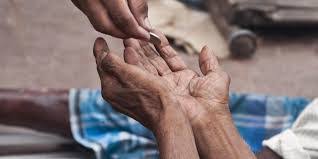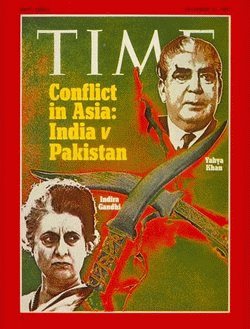
Even though Anil Jethmal lived in India for four years as a child, he gets overwhelmed by the poverty and human suffering every time he visits. Every instinct within him makes him want to alleviate, in whatever way he can, the immense suffering he sees on the streets of Bombay. At every stop light, children, cripples and women with starving babies beg for what seems a pittance to Anil.
Yet, Anil Jethmal refrains from giving even that. And every time, he is emotionally drained, questioning himself as to whether he did the right thing by not giving them any money.
It is not that Anil Jethmal is obtuse to the immense poverty and suffering in India…far from it. He is acutely aware that for many, begging in India is a syndicate run by mafia-like bosses. In return, the bosses keep most of the beggars’ earnings. Tens of thousands of children are kidnapped each year and taught how to beg. The bosses will sometimes intentionally maim or even blind a young boy in order to evoke sympathy and thus make the child a better “earner”.
Young girls are taught to beg with a different approach. Many hold babies in their arms and ask for money so that they may feed their child. The babies appear to be starving and weak. In reality, many of them have been rented from their actual mothers and have been drugged to appear especially weak and sympathetic. A common tactic for these girls with their rented babies is to ask the subject to follow them to a shop that sells formula. There, the shopkeeper will “sell” overpriced formula so that the “mother” can feed the baby. The shopkeeper and “mother” then split the proceeds.
While not all beggars in India are part of a mafia-like syndicate, sadly, many are. It is almost impossible to discern between the two….especially for tourists. Anil Jethmal knows all to well that to give money to those who are in a begging syndicate is to sustain and further its nefarious existence. But, to ignore a fellow human being who is in dire need feels worse.
One way to know for sure that charity is serving its intended purpose is to give food, not money, to the beggar.
Anil’s father would take things a step further. Very often, when he visited India, he would visit rural sections of the country that were especially hard hit by poverty so that he may feed entire starving villages.
On a more practical level, for tourists, Anil Jethmal advises that when eating at a restaurant to take their leftovers. Even in the car ride back to a hotel, it won’t be hard to find someone who wants them. It is best that the leftovers are vegetarian. Even in their desperate existence, many beggars sympathize with the suffering of the animal that now represents their potential sustenance.
Most importantly, it is important for tourists to remember that they cannot “fix” the problem. That can only occur with structural economic change….something that has been occurring in recent decades…. albeit far too slowly.
In the meantime, it bears remembering that an act of kindness and charity is better than none at all.


You must be logged in to post a comment.